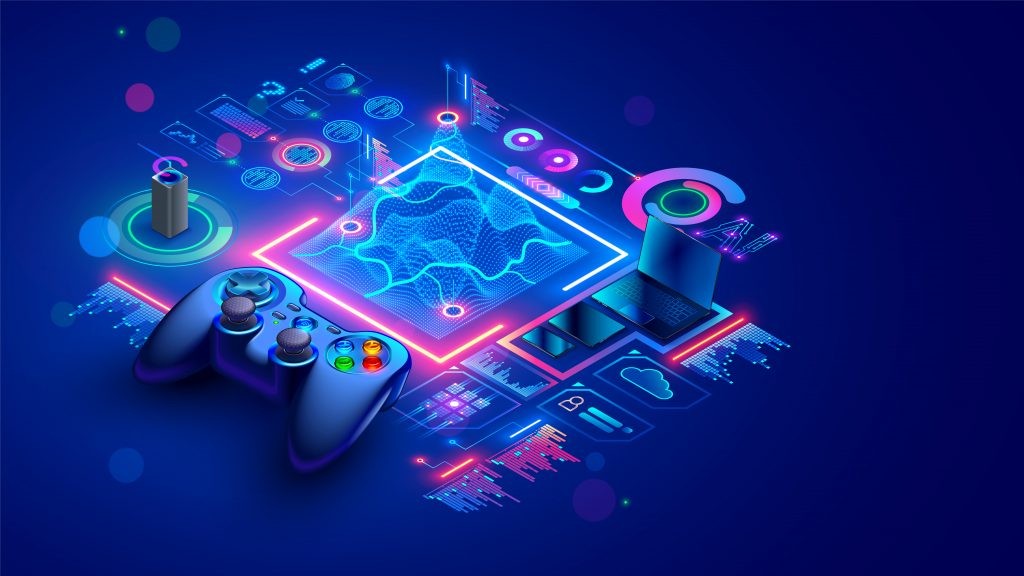Just like any industry, the gaming industry is witnessing a notable revolution, all because of the increasing advancement of technologies. Among these technologies, blockchain is contributing significantly when it comes to reshaping the future of the gaming industry.
With its decentralized and transparent nature, blockchain offers a multitude of benefits for the game app development industry. Thus, the experienced developers of game app development companies in Abu Dhabi are utilizing this technology, not only to enhance security but also true ownership and foster engaging in-game economies.
The Growing Importance of Blockchain in Game App Development
Well, in this gaming app development industry, developers are seeking new ways to overcome concerns and identify the benefits of incorporating blockchain technology. By utilizing this technology in their game development process, developers can focus on issues like,
- Security vulnerabilities
- Fraud prevention
- Ownership disputes
- A centralized transaction system
So, by leveraging blockchain, game app developers can enhance the user experience and unlock new possibilities for in-game economies.
Benefits Of Blockchain Technology For Gaming App Developers
- Enhanced Security and Fraud Prevention Through Blockchain
In the traditional gaming app industry, the games were not secure from vulnerabilities such as hacking, the use of cheating codes, and unauthentic access for players. This eventually results not only in a compromise on user data but also undermines the fairness and integrity of the gaming experience.
Moreover, blockchain reduces the risk of single points of failure and unauthorized tampering. With the use of cryptographic algorithms and consensus mechanisms, game developers can ensure the integrity and authenticity of game data, making it significantly more resistant to hacking and fraud.
- Enabling true ownership and digital asset management
When it comes to ownership of in-game assets, it is usually controlled by the game app developers. In traditional gaming apps, the game app developers typically have ownership authority over in-game assets. However, this leaves the gamers without real ownership, which restricts their ability to move, exchange, or profit from their digital assets. Regarding the worth and uniqueness of these items, it also results in a lack of openness and confidence.
As a result, ownership and asset management in in-game apps are changing thanks to blockchain technology. Developers can use blockchain technology to build decentralized virtual environments where players have actual ownership. As a result, players can trade or sell their in-game assets outside of the gaming environment and have total control over them.
- Facilitating Peer-To-Peer Transactions and In-Game Economies
Many of the developers used to face the limitations of centralized transaction systems in game apps. As the centralized transaction systems in game apps often come with limitations such as
- high transaction fees,
- delayed processing times,
- And restrictions on cross-border transactions.
So, eventually, these limitations result in restrictions on the freedom of players to engage in peer-to-peer transactions.
The introduction of blockchain technology in the gaming industry, it has eliminated the need for intermediaries in peer-to-peer transactions within game apps. With the use of cryptocurrencies or digital tokens, players can engage in secure and instant transactions directly with each other.
- Leveraging smart contracts for transparent and automated gameplay
Another notable advantage for game app developers is the introduction of smart contracts and their role in game app development. You can consider smart contracts as the cool kids of the blockchain world. They’re basically self-executing agreements, with the terms of the agreement directly written into lines of code.
Thus, smart contracts are essential for maintaining fairness and transparency in the creation of game apps. By automatically carrying out transactions in accordance with predetermined rules, they do away with the need for intermediaries or trust. Transparency becomes crucial when it comes to smart contracts. Every action, every communication, and every transaction are publicly visible on the blockchain. That means you may bid cheaters farewell and welcome to a level playing field!
- Enhancing User Engagement And Loyalty With Blockchain Features
Who said blockchain had to be all business? You may make your game more addicting and engaging by using gamification and prizes. You may design challenges, achievements, and leaderboards that reward players by exploiting blockchain characteristics. This not only keeps gamers interested but also provides them with a sense of accomplishment and growth.
Trust is crucial in a virtual world. Fortunately, blockchain has arrived to save the day. You may create a community where players can trust each other and the system by leveraging blockchain-based features. Blockchain ensures transaction security and transparency, lowering the risk of fraud and disputes. Furthermore, by using features such as decentralized voting and reputation systems, players can influence the game’s development.
Conclusion
Ultimately, gaming app developers have a plethora of fascinating opportunities thanks to blockchain technology. The advantages of blockchain technology for game development are numerous and extensive. We can look forward to a time when user empowerment, transparency, and fairness will be at the forefront of gaming experiences as developers continue to innovate and integrate blockchain technology into their game apps.


